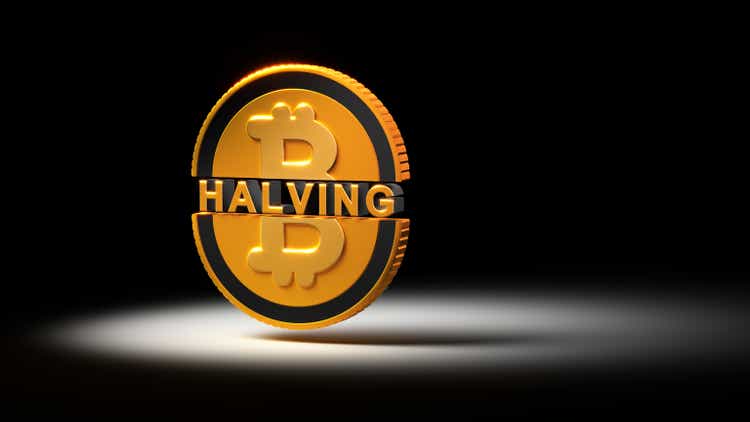‘We can never get rid of the history’: Ericsson chief on Isis payments

Of all possible business partners to have, there are few worse than Isis. So it is little wonder that investors dumped shares in Ericsson this week after the Swedish telecoms equipment maker said it might have paid the terror group in Iraq.
The revelation is chastening for Borje Ekholm, brought in as chief executive in January 2017 to restructure the group and tidy up its compliance problems. That led to a settlement of more than $1bn with US authorities in 2019 over bribery allegations in Djibouti, China, Vietnam, Indonesia and Kuwait.
Andrew Gardiner, analyst at Citi, noted that Ekholm was able to blame those events on previous management, but “the alleged transgressions in Iraq happened during the tenure of the current CEO and CFO”.
Asked by the Financial Times if he feels he is in the line of fire this time, Ekholm replied: “I do. I don’t think the bad conduct changed on January 16 2017. Of course, we hadn’t found everybody by then . . . I know part of this involves me, and part of it involves before. I’m not going to blame anybody for anything.”
The Iraq allegations — which the company probed as part of an internal investigation — are as pernicious as they are unproven. Ericsson concedes that it made payments for transport routes in areas that were under the control of terror groups, including Isis.
Since it was not able to prove who received the payment, Ekholm and Ericsson stopped short of classing it as “material”, or an event worthy of disclosure. The 14 per cent drop in its shares on Wednesday suggests investors disagree.
Ekholm said it was all part of Ericsson’s journey to change its culture. “It involves confronting past issues. You don’t like it, it’s embarrassing, but you have to confront it,” he added.
The 59-year old was something of a surprise choice as chief executive for Ericsson. A longtime lieutenant of the Wallenberg family of industrialists, one of the Swedish group’s leading shareholders, he had run Investor, their main investment vehicle, but had little direct telecoms experience.
His performance in turning around Ericsson — hit by a massive profit warning and thousands of job cuts just before he arrived — and returning it to the number one spot in the industry has quelled many of those critics.
Ericsson’s shares had more than doubled under his tenure before the Iraq news as it performed well in the early days of the shift to new 5G networks.
His strategy has been straightforward: excel in Ericsson’s core business of mobile infrastructure while trying to build up its presence in dealing directly with companies in its enterprise business.
Ekholm says he is excited by the increasing prospects for wireless technology such as using it for home broadband, while its pending $6bn acquisition of Vonage in the US aims to offer the possibilities of 5G to app developers everywhere.
But as the previous sprawling foreign corruption affair and now the Iraq case show, Ericsson’s corporate culture might be the hardest to turn around.
Ekholm talks of encountering “watermelon KPIs”, key performance indicators, when he first took over — “green on the outside, and red on the inside” — meaning that bad news was being hidden.
Since he arrived all Ericsson employees have to do anti-bribery and corruption training and sign a code of business ethics. He wants to install a “speak-up culture” where staff are unafraid to speak out, be it a snag in product development or an issue in compliance.
“There is that journey we are going through. I don’t think we’re anywhere near where we want to be. But there are changes such as more robust discussions. We can never get rid of the history. We just need to deal with it as much as we can,” he adds.
Ekholm, who lives in Colorado in the US, was known as the “supreme engineer” during his Investor days where he built up its venture capital business as well as heading Sweden’s Royal Institute of Technology.
He has been unafraid of controversy, lashing out both publicly and privately at Ericsson’s home government of Sweden for its decision to ban controversial Chinese competitor Huawei from its networks, arguing that the move restricted free trade and competition.
“As it looks right now, Sweden is a really bad country for Ericsson,” he texted one Swedish minister, adding that in his situation “you fully understand why Europe has very few tech companies”.
Europe’s apparent lack of support for its two telecoms equipment makers, Ericsson and Nokia — in a rare instance where its technology is ahead of both US and Asian rivals — has also drawn his ire.
But for now his focus is on dealing with the fall-out from the Iraq allegations. Ericsson informed US authorities about the case in 2019, people familiar with the matter say, but it is unclear whether the US Department of Justice could open another investigation. The DoJ declined to comment.
The Swedish group has already signalled the DoJ believes it breached its deferred prosecution agreement from 2019 in another matter.
“It hurts to see the share price reaction, for sure. A lot of people are hurting, demotivated,” said Ekholm. He added: “I would not tell you the truth if I said it’s not impacting how we run the company. You’re only a human being.”
Additional reporting by Stefania Palma
World News || Latest News || U.S. News
Source link



